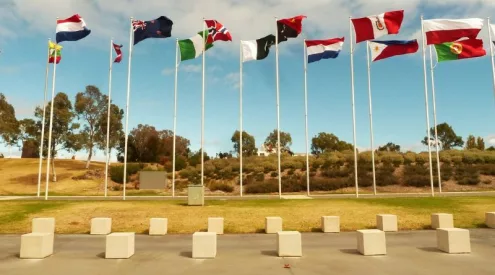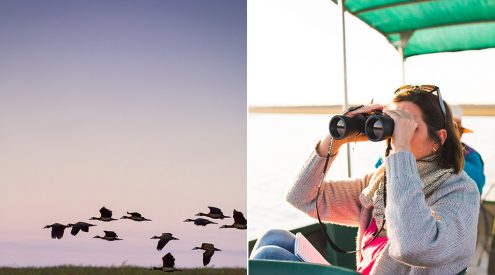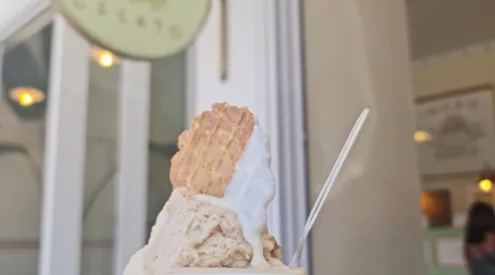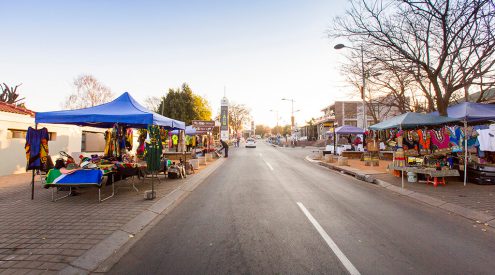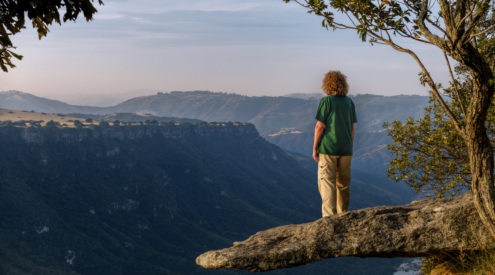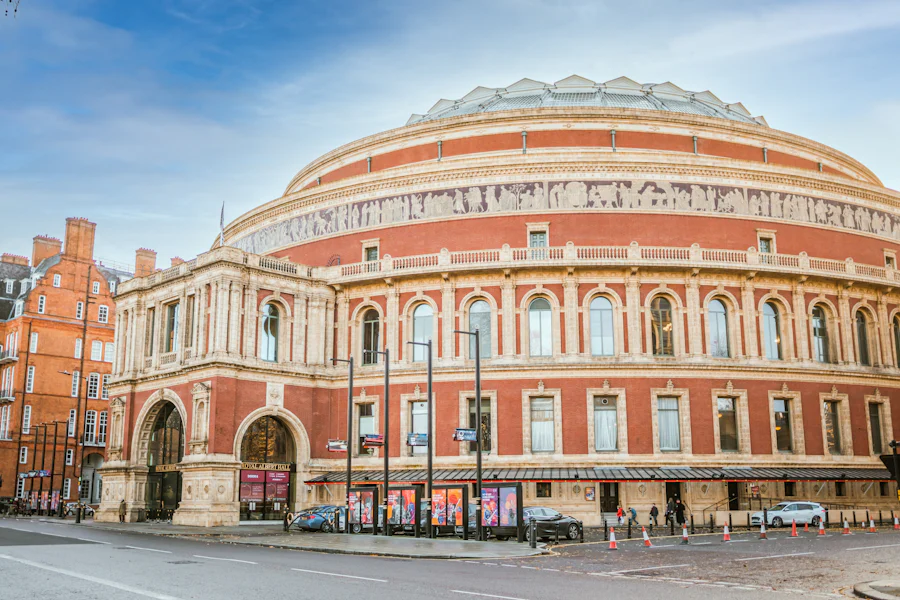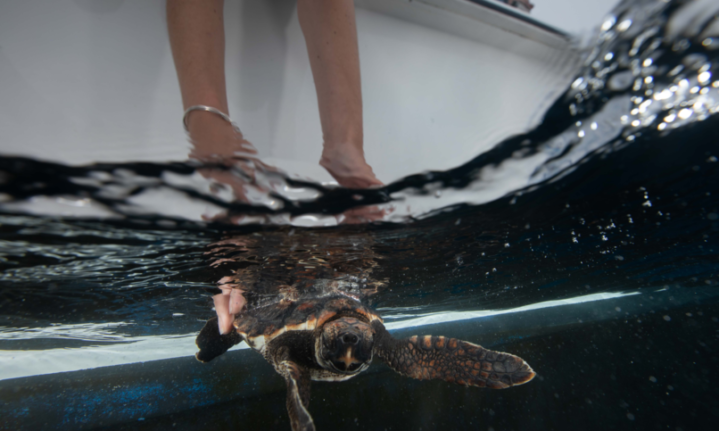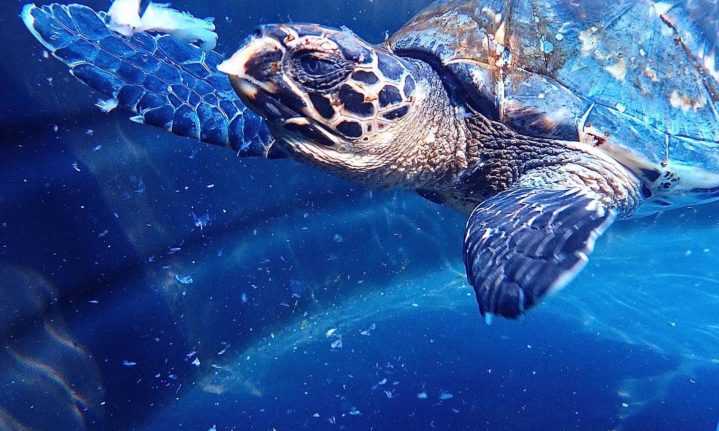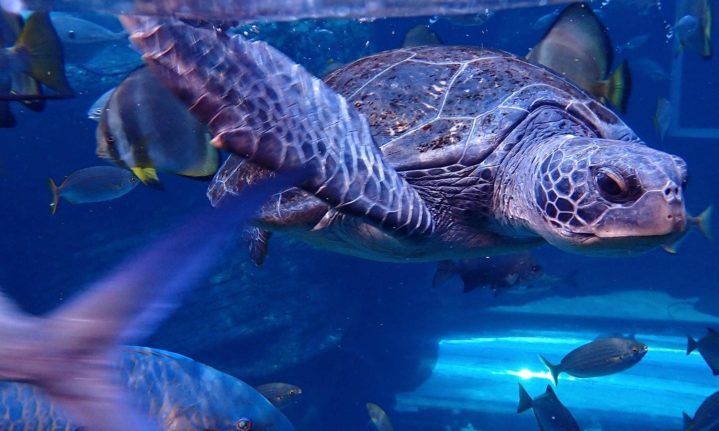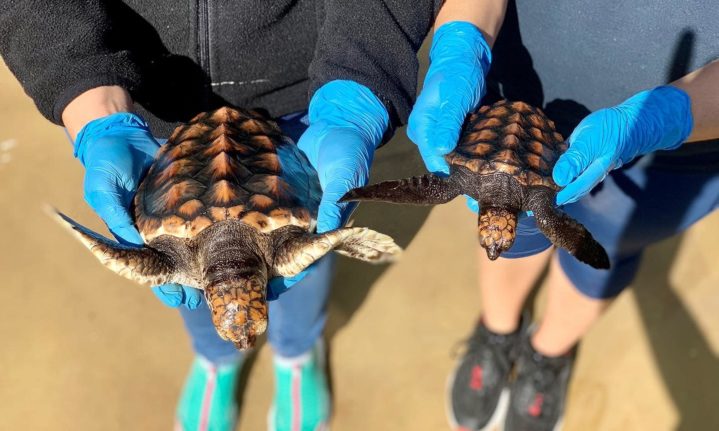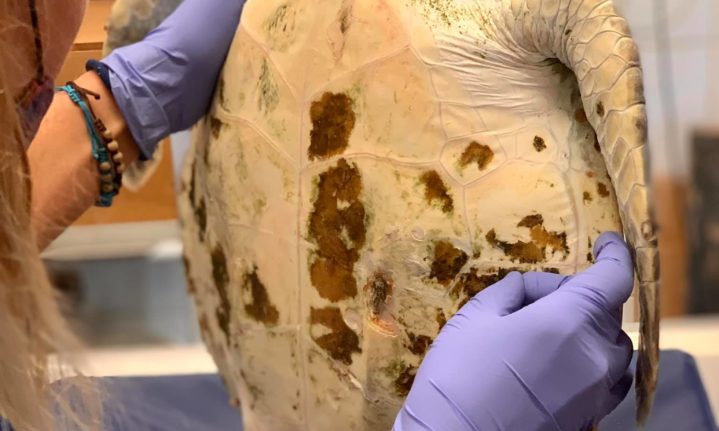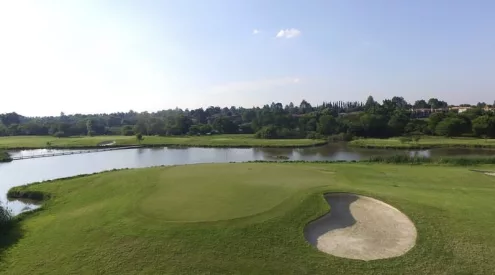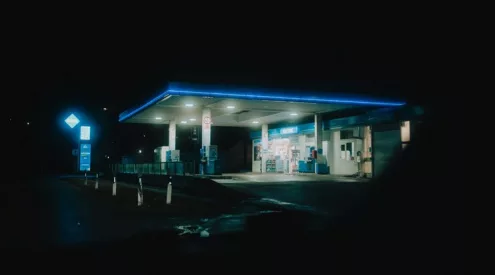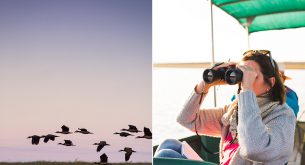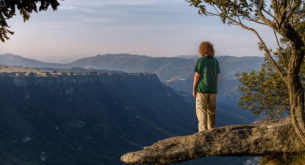The sea turtle rehabilitation team at the Two Oceans Aquarium Education Foundation released 44 rehabilitated sea turtles into the ocean approximately 30 nautical miles south of Hout Bay on January 17.
The turtles were all rehabilitated at the Foundation over the past few months after they were found stranded on Western Cape beaches. The group that was released included Geri, the three-flippered green sea turtle that has been recovering in the I&J Ocean Exhibit for the last couple of weeks.
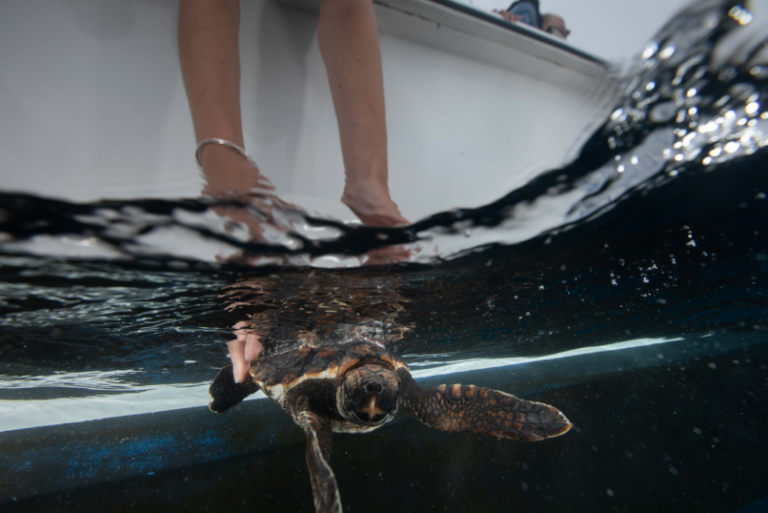
After months of rehabilitation, the turtles were cleared for release by the veterinarian. Some were tagged with satellite tags to enable the animals to be tracked, and others tagged with microchips, similar to those used for house pets.
On the morning of the release, the crew headed out about 30 nautical miles for them to encounter the warmer currents that can be found south of Cape Town during the summer months. Once these temperate waters were reached, the turtles were released to the great joy and jubilation of all on board.
Which turtles were released?
Post-hatchling loggerhead turtles

This release included 40 post-hatchling loggerhead turtles. These little ones weighed between 300g and 1,2kg. Loggerhead turtles nest on northern KwaZulu-Natal beaches and the eggs hatch during December and January every year. Once hatched, the tiny turtles make their way into the Indian Ocean and start to drift with the Agulhas Current. The Current carries them south towards Cape Town. At about Struisbaai, the Current doubles back on itself, heading north again.
Along the way, and at the current’s turning point, strong winds and rough seas push some of the tiny turtles into the colder surrounding waters. Being reptiles, and therefore having body temperatures that adjust to ambient water temperature, the cold water causes the turtles to go into cold shock and hypothermia. These compromised and often injured little turtles are expelled onto the beaches where concerned members of the public find them and bring them to the Two Oceans Aquarium for specialised care and rehabilitation.
Juvenile and sub-adult sea turtles are also admitted to the rehabilitation programme. Unlike the post-hatchlings that can often be found stranded in concentrated areas, juvenile and sub-adult sea turtles strand all along the Western Cape beaches. The turtles are given appropriate medical care and are fed a specialised diet until they are cleared for release.
Rehabilitation can take a few months or even years. Five of the seven turtle species found worldwide have been rehabilitated by the Two Oceans Aquarium Education Foundation sea turtle rehabilitation programme.
Geri the three-flippered green turtle
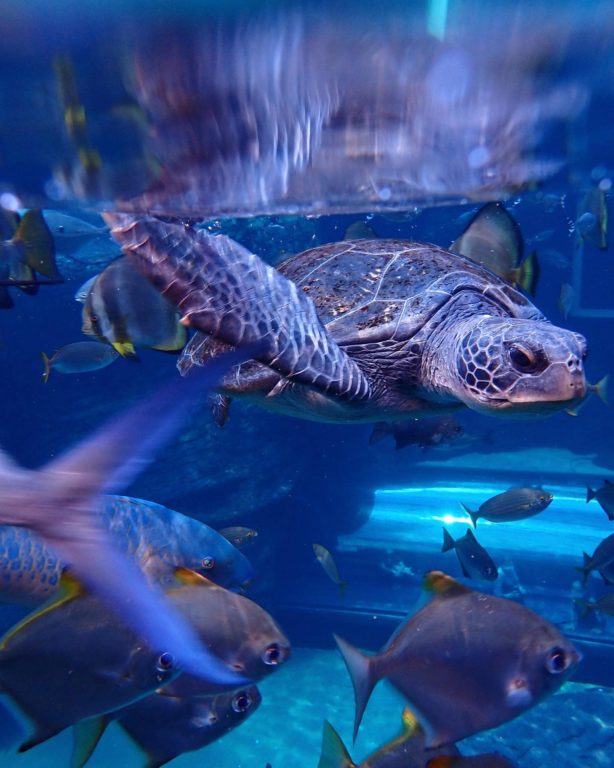
Geri was found stranded at Paternoster on 25 July 2021. The three-flippered turtle was brought to the Aquarium by Tracy Whitehead who is the coordinator of the Aquarium Foundation’s turtle rescue network (group volunteer organisations and individuals). Weighing 48kg, the green turtle had an old, healed injury that had resulted in the amputation of one of its front flippers.
The turtle also had several other external injuries which were immediately treated. Through dedicated care, Geri has made a full recovery and has already adapted well to life with only three flippers. Geri has been tagged with a satellite tag provided by the Department of Forestry, Fisheries and Environment and will be monitored for as long as the tag remains active.
Harry (sub-adult green turtle)
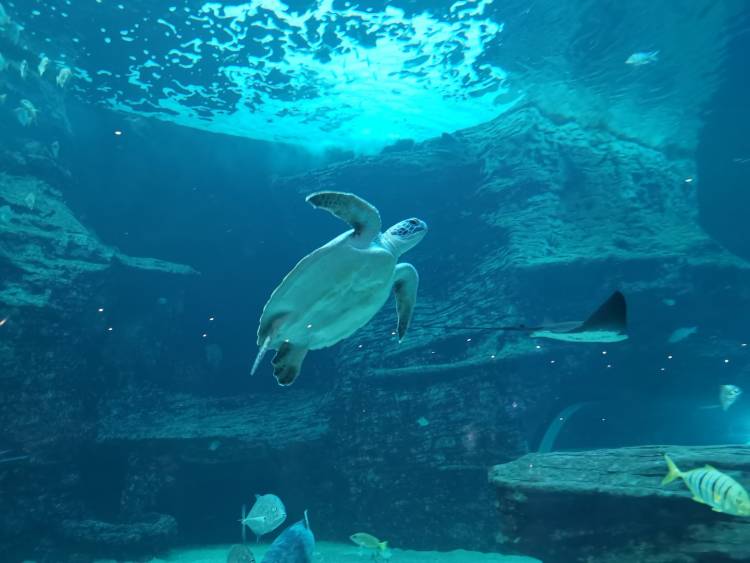
Harry was found at Stilbaai on 21 October 2020. The turtle was incredibly ill, suffering from shell rot, severe wounds and gut stasis. Specialised medication eventually managed to get its gut moving again, which resulted in the expelling of a piece of plastic that had been consumed while in the ocean.
Harry’s recovery was slow, but he was eventually moved into the I&J Ocean Exhibit to enjoy more space and to facilitate his faster recovery.
Litchi
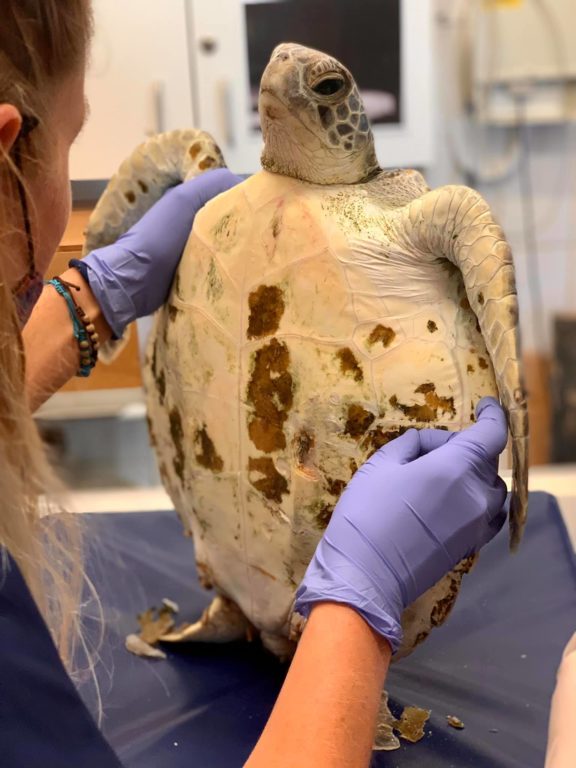
Litchi was found at De Hoop Nature reserve on 22 February 2021. The turtle weighed 7kg, and was in good condition, except for the multiple marine leeches attached to it.
The turtle responded to the rehab process very well, and although she showed signs of ‘bubble butt’, the condition cleared up quickly.
Echo (juvenile hawksbill turtle)
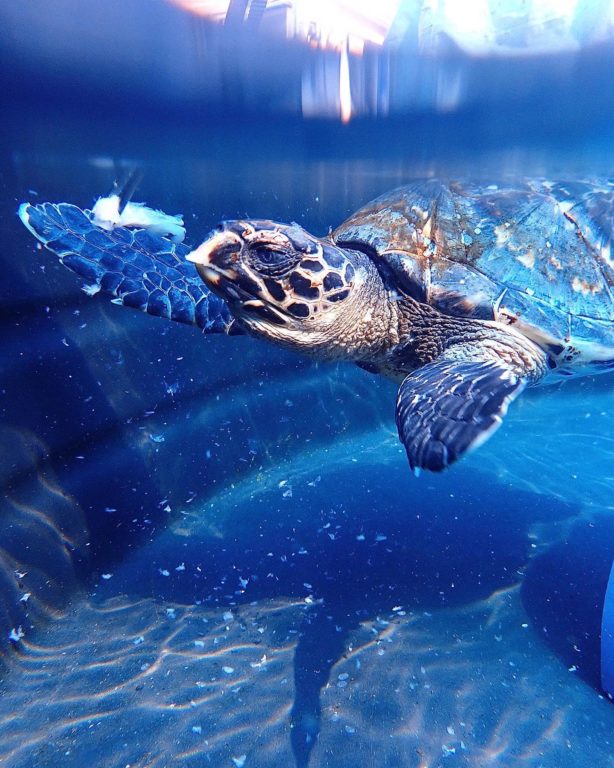
Echo is a juvenile hawksbill turtle that was found washed up and half-buried on the beach at Struisbaai on 20 October 2021. Through networking with the NSRI, the turtle was brought to the Aquarium where it was found that, even though it looked quite bad and was covered in algae, it was strong and fairly healthy.
The rehabilitation team do not often see hawksbill turtles for rehabilitation, but Echo was one of five brought in this year. Echo was the only one strong enough to recover. Hawksbills are critically endangered and Echo’s recovery and release are incredibly important for the species.
Picture: Two Oceans Aquarium
ALSO READ



